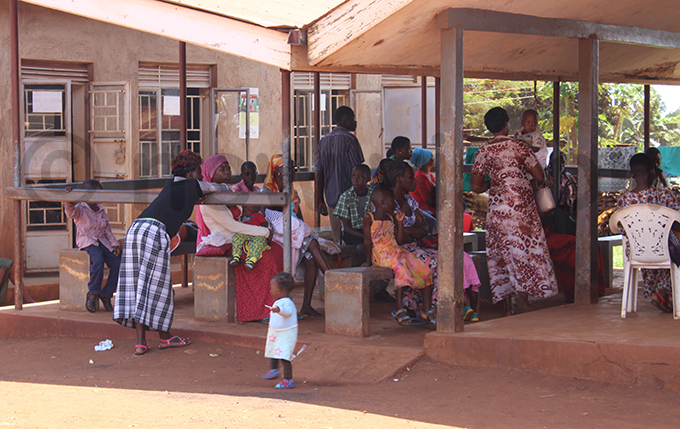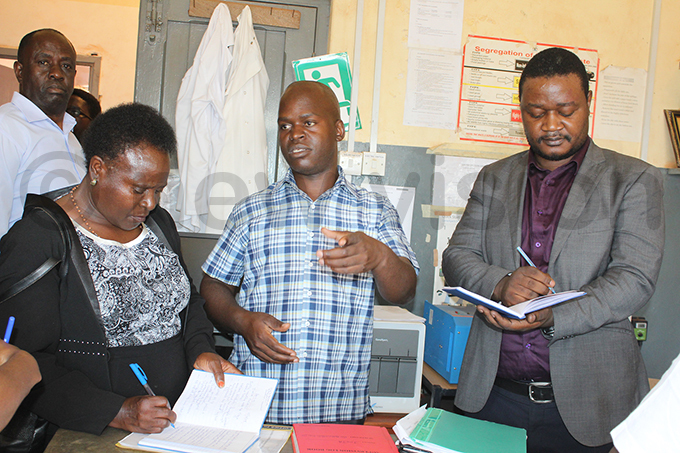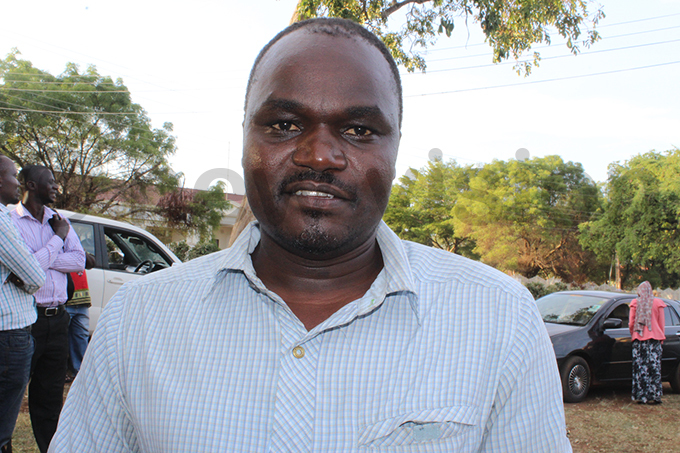Lack of information impedes efforts to control TB
Although community information is low, diagnosis and suspicion index has increased thus the high numbers of TB patients
Lack of information among community members is hampering efforts towards the control of Tuberculosis in Uganda, says Robert Nakibumba, the coordinator People Living with Tuberculosis under the Uganda Country Coordinating Mechanism (UCCM) of the Global Fund.
During the UCCM board members visit to the districts of Busia, Mbale and Jinja last week, it was found that unlike other diseases like HIV/AIDS and Malaria TB is very a big majority of the population still lack information.
"Community knowledge about TB is very low and that is where we need to put a lot of emphasis," Nakibumba says.
He says there is need to arm Village Health Team (VHT) members with the best information in order to enable information trickle down to the locals.
Although community information is low, diagnosis and suspicion index has increased thus the high numbers of TB patients.
 Patients at Bugembe Health Centre IV in Jinja district. Photo by Godfrey Mutegeki
Patients at Bugembe Health Centre IV in Jinja district. Photo by Godfrey Mutegeki
"TB patients are many but we now ha
 Bamutaze who is in charge of Bugembe Health Centre IV takes members of the UCCM on a tour. Photo by Godfrey Mutegeki
Bamutaze who is in charge of Bugembe Health Centre IV takes members of the UCCM on a tour. Photo by Godfrey Mutegeki
ve clinical evidence in that regard," Nakibumba says.
Ambroze Bamutaze who is in charge of Bugembe Health Centre IV in Jinja district says cases of Multidrug-resistant TB (MDR-TB) are also high due to poor treatment.
"We have so many patients who are MDR in our area because many don't get the right treatment on time while others are ignorant," Bamutaze says.
MDR-TB is TB that does not respond to at least Isoniazid and Rifampicin, the two most powerful anti-TB drugs.
Bamutaze also notes that some patients fear to seek treatment because of stigma associated with TB.
"We have the drugs and the machines to detect the disease which is an advantage to us as we fight this disease. However the challenge is that these people go to small private clinics and self-medicate themselves, leading to resistance," Bamutaze says.
Harriet Mwesigwa, the Mbale district education officer believes that if teachers are armed with the right information about TB, they can be a big asset.
"If partners can train science teachers they can be a big asset in delivering TB and other health related information. Science teachers need to be trained on Tuberculosis so that they can be able to share information with the children and the communities they can from," Mwesigwa said.
Prof David Kitara-Lagoro the academia representative on CCM says there is need to increase sensitization on TB to avail information to the public like it is with HIV/AIDS and Malaria.
"Pupils, teachers and the community need to know about the dangers of TB; they need to know how to prevent it and how to treat it. This is still lacking," Lagoro says.
The CMM board members were in the three districts to assess the implementation of Global Fund funded projects.
"Lack of information on TB affects the HIV fight since majority of the TB patients are also positive," Lagoro says.
Many TB patients endure long and painful periods of illness, during which they are mostly treated inhumanely.
 Robert Nakibumba. Photo by Godfrey Mutegeki
Robert Nakibumba. Photo by Godfrey Mutegeki
PTB is a slow silent killer and its sufferers watch their bodies waste away and their spirits are broken, until they succumb to death.
Persons infected with active PTB, some unaware, live freely within their families and communities unknowingly spreading it.
The national TB survey estimates that Uganda has 87,000 TB cases annually; an annual prevalence rate of 253/100,000; and a rate that is higher than had previously been thought.
TB burden has continued to cause an enormous health challenge and is a big public health challenge.
According to the WHO annual TB report for the financial year 2016/2017, the budget for Uganda's national TB programme is $54 million (nearly sh196b), of which only 29% is funded, leaving 71% (about sh139.2b) not funded.
Most of the lower level health facilities are equipped with obsolete light microscopes to diagnose PTB by the smear microscopy technique.
The national TB survey, moreover, found that smear microscopy, the main TB diagnostic test in the country, misses about 60% of the cases finding which led the ministry of Health to conclude that there is a need to update the country's TB screening and diagnostic algorithms.